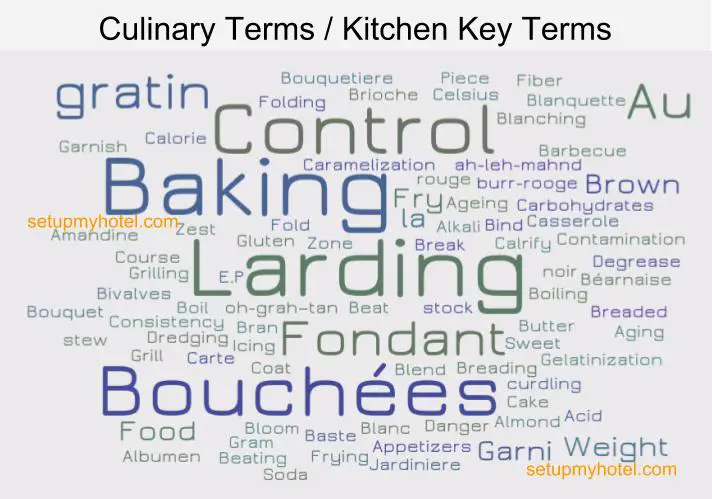Kitchen Key Terms Complete List (A-Z) / Food Production Key Terms / Culinary Terms / Kitchen Jargons

Food Production Key Terms / Kitchen Terms / Culinary Terms / Kitchen Jargon In the world of food production and ...
Read more
Key Terms / Jargons Used In Housekeeping Department

Key terms used in the hotel Housekeeping department When it comes to the world of housekeeping, there are several key ...
Read more
Front Office Magic Words, Phrases, Greetings and Courtesy Language Examples

Example Front Office Magic Words, Phrases, Greetings and Courtesy Language Used by Hotel Staff As the saying goes, “first impressions ...
Read more









